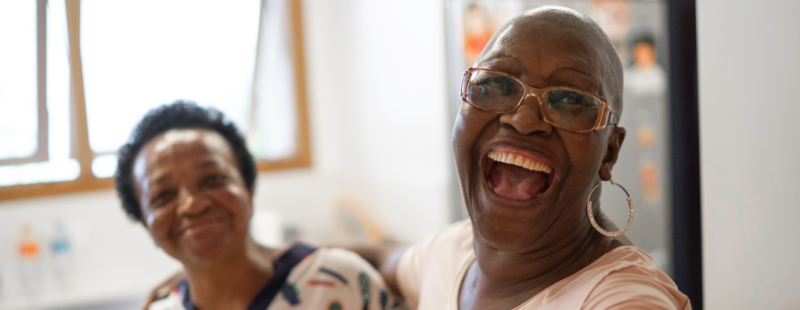When an older person moves from familiar surroundings into a care home, it can be an emotional upheaval. For many of us, it will be the final great change in their lives – and come sooner than anticipated. The transition from independence to becoming dependent on others can happen overnight. A fall leading to hospital admission can leave someone with only a fortnight to find accommodation that will suit their needs. The following guest blog post by Tom Owen, Co-Founder and Co-Director of My Home Life, has been written to complement our new collection of essays, ‘Alone in the Crowd: Loneliness and diversity’.
Who am I?
Sometimes, the transition to a time when we need full-time care doesn’t come swiftly, but with a slow loss of identity.
Some of us will begin to lose their sight, their mobility, and their ability to think and remember. Gradual deterioration causes a frightening disconnection between who we’ve always been, and who we’re becoming.
That feeling of ‘who am I?’ can lead to increasing isolation, as we withdraw from our usual activities and social events.
Boredom and isolation
When one older person gave insight into her own ‘onward creep of decrepitude’, she emphasised that the worst aspect of aging was not loss of physical health, but the boredom and isolation that came with losing her identity. She called it ‘the crushing boredom of life.’
Listen to older people and it becomes clear that losses we experienced during old age – of health, of a familiar home, and of identity – can become ‘triggers’ for loneliness that need to be responded to as early as possible.
‘Settling in nicely’
We’ve all heard the phrase ‘settling in nicely’ to describe how a new care home resident is getting on. But what does it really mean? A resident may passively accept a new routine, but doesn’t account for the real trauma they may still be feeling.
When care homes work well, professional, empathic staff provide extraordinary support for new residents. They create a space to grieve, to be angry, to process their journey, and to look forward to a new beginning in their new home – but it’s a huge additional burden of work for already very busy staff.
A call for counselling
It is not surprising that many older people arrive at a care home in a state of trauma – yet there’s a shocking lack of referrals for counselling to help them through this period of loss and adjustment.
This is a huge additional burden to place on staff: we need a network of social workers, counsellors, volunteers and geriatricians to provide support during the final stages of life. Sadly, the opposite is often true – when a person moves into a care home other agencies can lose interest.
Care from the community
We need society to decide we want care homes that cherish and support our older people.
My Home Life is a social movement aiming to improve the quality of life for older people by building connections between communities and those caring for them – because if we don’t care for care homes now, we can’t expect any better for ourselves in the future.





No comments on this article yet. Please feel free to submit a comment below.
By submitting a comment you grant Campaign to End Loneliness a perpetual license to reproduce your words and name/web site in attribution. Inappropriate and irrelevant comments will be removed at an admin's discretion. Your email is used for verification purposes only, it will never be shared.